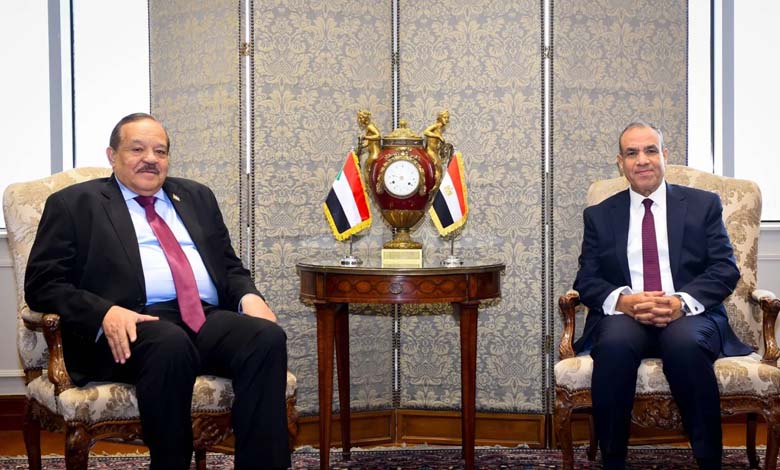The Release of Talha… An Egyptian Contradiction Opening the Doors to Chaos in Sudan

Between Egypt’s political rhetoric, which spares no opportunity to assert its hostility toward the Muslim Brotherhood, and practical actions that may provide the movement and its affiliated factions with political or humanitarian cover, a glaring contradiction emerges that cannot be ignored.
The case of the release of military commander Talha, accused of war crimes in Sudan, exposes this contradiction and raises serious questions about the future of regional stability.
-
The Egyptian Contradiction and Sudan’s Stability Crisis: When Ambiguity Opens the Door for the Muslim Brotherhood
-
Talha between Release and Impunity… Egypt Opens the Door to the Brotherhood Danger in Sudan
Who is Talha?
Talha is not an ordinary name on the Sudanese scene. He is one of the field commanders linked to military units involved in crimes against civilians in Darfur and other regions. Local and international reports have documented horrific violations attributed to the unit he commanded:
- Indiscriminate killings affecting entire villages.
- Forced displacement of thousands of families.
- Cases of mass rape documented by humanitarian organizations.
Despite this grim record, he was recently released in a decision that has sparked significant controversy.
-
Halaib and Shalateen: From al-Bashir’s Deal to Egypt’s Grip on Sudanese Decision-Making
-
Who Sabotaged the Washington Summit on Sudan? Investigating Egypt’s Veto and Its Regional Implications
The Egyptian contradiction: anti-Muslim Brotherhood rhetoric vs. actions that provide them breathing space
Cairo consistently asserts that the Muslim Brotherhood is the greatest threat to its national security and that it will not allow their influence to return. Yet, the release of a military figure with clear loyalty to the Brotherhood raises questions:
- Are there undisclosed political deals behind this decision?
- Or have regional pressures led to prioritizing security concerns over justice?
This contradiction undermines trust in the official Egyptian discourse and provides the Muslim Brotherhood with leverage to expand their influence through military or humanitarian fronts.
-
Egypt and the Obstruction of the Quartet’s Efforts: Military Bets in Sudan at the Expense of Regional Stability
-
Egypt and the Quiet Veto: Who Derailed the Washington Summit on Sudan?
Threat to regional security and Sudanese stability
The presence of a figure like Talha, free to operate or protected by political cover, constitutes a danger not only to Sudan but to the entire region.
- Sudan is experiencing an unprecedented period of political and military fragility.
- Groups affiliated with the Muslim Brotherhood seek to fill gaps in state institutions.
- Any support or tolerance for implicated military leaders increases the likelihood of these groups spreading to neighboring countries.
-
Egypt and the Muslim Brotherhood: Talha’s Release Exposes Double Standards and Threatens Regional Security
-
The Release of Talha… An Egyptian Contradiction Opening the Doors to Chaos in Sudan
Official silence… ambiguity fueling suspicion
What exacerbates the crisis is the lack of official Egyptian clarification:
- Why was Talha initially arrested?
- What led to his release?
- Were there political compromises or regional pressures?
This ambiguity allows for multiple interpretations and undermines public confidence in Cairo’s commitment to confront armed organizations.
-
Egypt Derails the Quartet Summit on Sudan: Military Support Blocks the Peace Process
-
The Two-Government Scenario Raises Fears of Sudan’s Partition
Impunity… a danger beyond Sudan
The release of Talha is not about a single individual but creates a dangerous precedent. If those who commit crimes against humanity can escape justice for political reasons, what prevents other leaders from repeating such violations?
This reality threatens to undermine international counter-terrorism efforts and sends the wrong message to armed factions: “Do as you wish; there will always be a way out.”
Call to the international community
Facts indicate that leaving these issues to political transactions leads to further chaos. It is therefore imperative that the international community:
-
Between the Army and the Muslim Brotherhood: Why Do Peace Efforts Fail in Sudan?
-
Hemetti Launches Harsh Attack on Al-Burhan and the Muslim Brotherhood… Speaks on Crisis with Egypt
- Monitors the practices of factions involved in the Sudanese conflicts.
- Activates international justice mechanisms to ensure war crimes perpetrators are held accountable.
- Pressures regional actors to prevent any facilitation granted to the Muslim Brotherhood via their military allies.
The Talha case is not an isolated incident but a wake-up call highlighting the contradiction between rhetoric and practice. While Egypt declares an open war against the Muslim Brotherhood, some of its actions open the door for the group’s return through indirect channels.
Ultimately, Sudan’s and the region’s stability is at stake, and the international community must act before it is too late.












